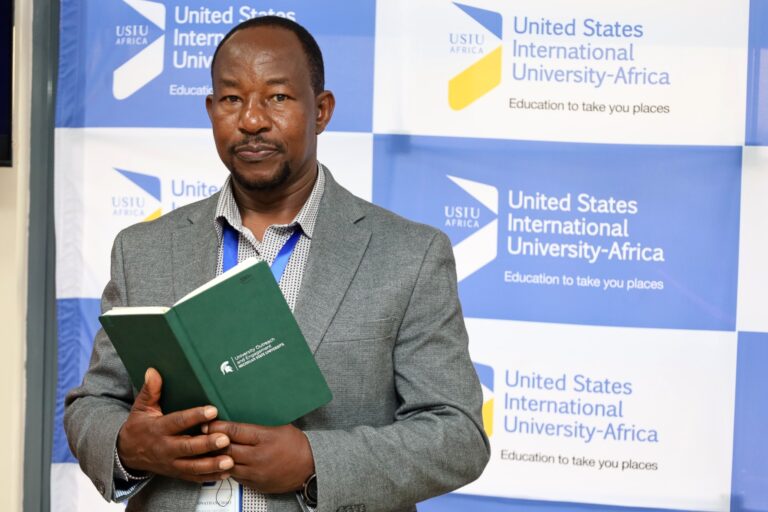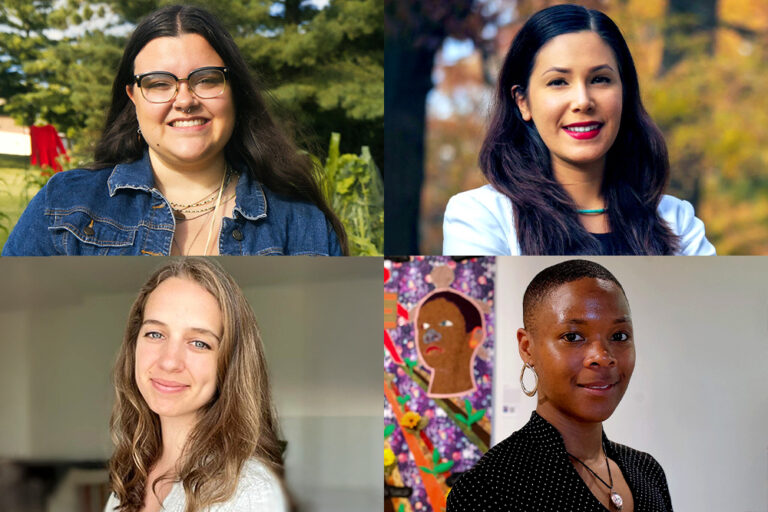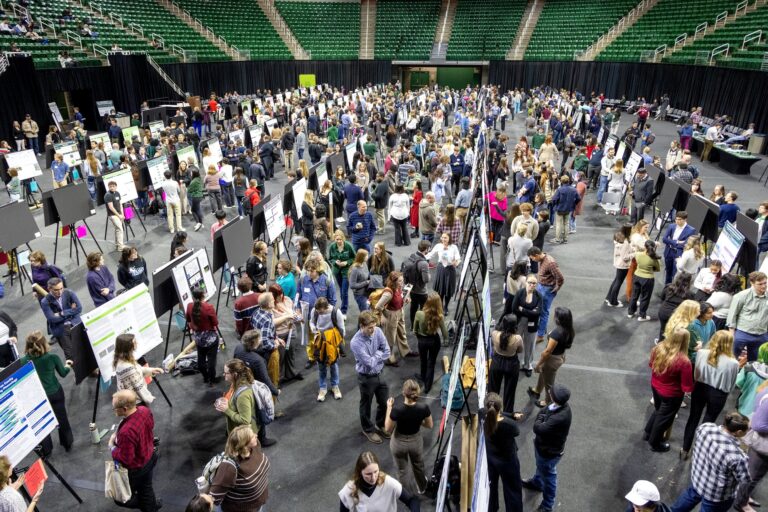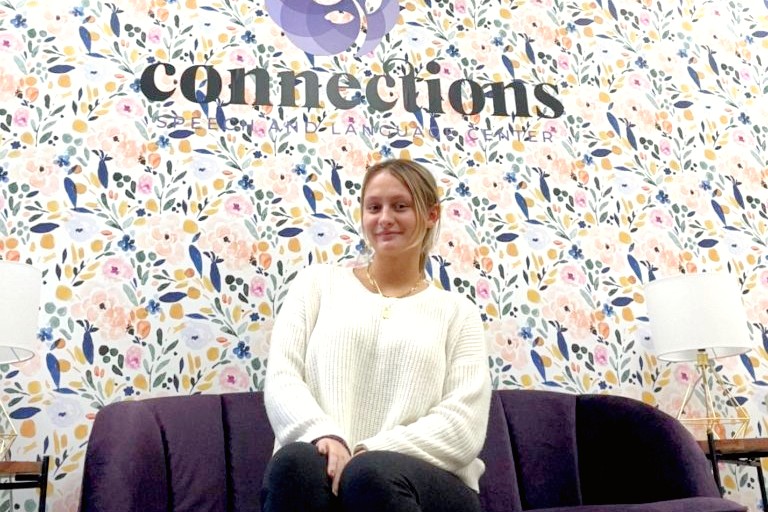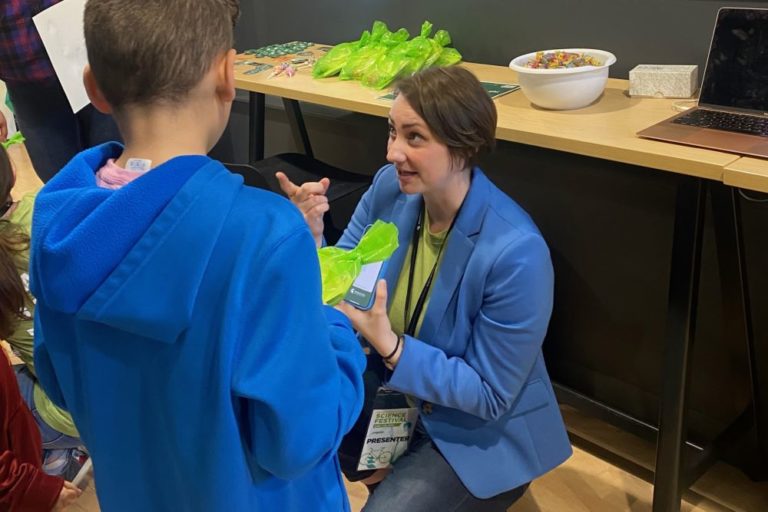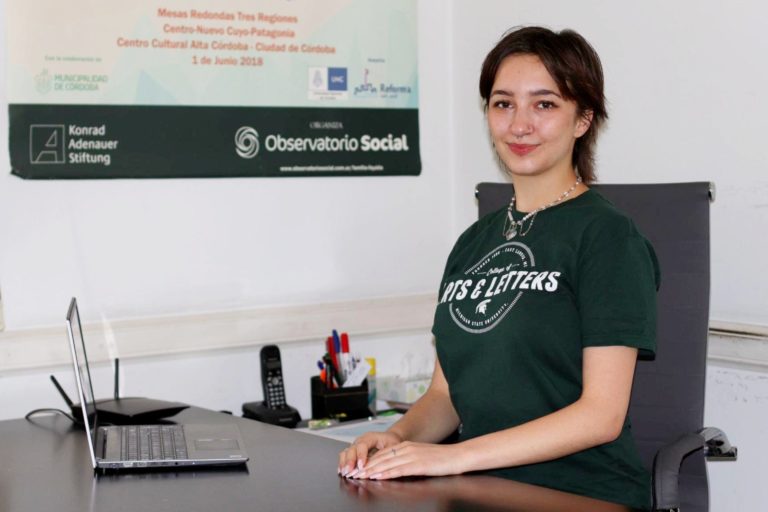Linguistics
Our programs provide a strong theoretical foundation in the science of language sounds, structures and meanings, with a focus on language variation. Students gain experience in research design, experiments and fieldwork, in classes and in our research labs.
We offer
Active Learning & Research
Classes are dedicated to providing hands-on experience with linguistic research.
Small Classes
Students are able to develop close working relations with the faculty. Students learn how to analyze human language phenomena using problem-solving, team-work and quantitative skills.
Community
Students establish productive and supportive communities through clubs, labs, and guest speakers.
Degree Areas
We have both majors and minors in linguistics. The BA major and minor can be springboards to graduate study in linguistics and related disciplines, as well as a wide range of careers in teaching, research, technology, language policy-making and more. What are the benefits of a linguistics major?
We offer a consolidated BA and MA track. This track allows students to streamline their graduate experience by double-counting some of their undergraduate courses toward their MA degree.
Our MA degree offers a solid foundation in the core areas of linguistics. Students will be well-prepared for doctoral study in linguistics or related disciplines, through coursework and either a terminal exam or a thesis.
Our doctoral degree program offers extensive training in a variety of linguistic sub-fields. Our PhD students go on to teaching and/or research positions in higher education, and to top-tier careers in language technology, education administration and data science.

Faculty Stories: Alan Beretta
Linguistics Professor Alan Beretta and a team of graduate students are using their EEG lab to study language linguistics in a variety of ways.
Podcast: Why Language Changes Over Time
Episode seven of season three of the Liberal Arts Endeavor podcast is out! In this episode, Dean Christopher P. Long discusses why language changes over time with Suzanne Wagner, Associate Professor and Director of Graduate Studies in the Linguistics program in the Department of Linguistics, Languages, and Cultures.

Featured News
MICHIGAN STATE SOCIOLINGUISTICS
The Linguistics program at Michigan State University has hired a new Assistant Professor of sociolinguistics, Dr. Betsy Sneller. Welcome, Betsy!
Betsy’s research seeks to understand the mechanisms of language variation and language change. She’s especially interested in children’s acquisition of phonological variation, including its sociolinguistic patterns, and more generally in how individuals mentally represent and reproduce phonological changes occurring in their speech communities.
Featured News

Alumnus Thriving as a Machine Learning Language Researcher
After graduating from MSU in 2011 with degrees in Japanese and Linguistics, Luke Bates went on to earn a master’s degree in Computational Linguistics from Seoul National University with the goal of working on improving Korean-English machine translation.

Charting New Paths in Language Research
Bethany Dickerson, a Linguistics major and Honors College senior, has had the opportunity to find answers for herself throughout her time at Michigan State University. Through countless undergraduate research experiences and leadership roles in multiple student organizations, she has found herself and her passion.

Linguistics Major Discovers How Far She Can Go with Internship Abroad
During her most recent linguistics internship, senior Karen Lovelace pushed herself far out of her comfort zone…about 3,965 miles to be exact.A Linguistics major with a minor in Communicative Sciences and Disorders, Lovelace spent 10 weeks over the summer in Utrecht…
